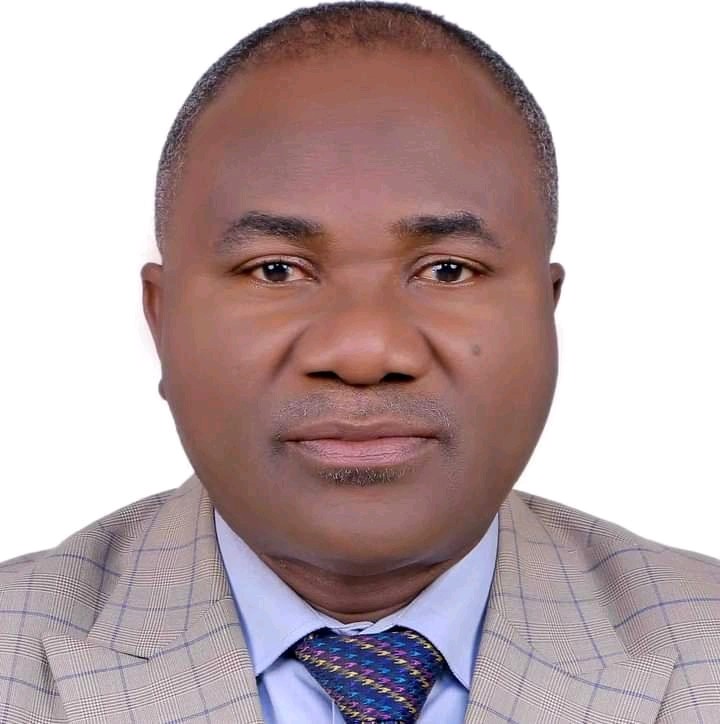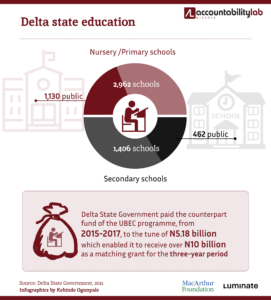NEWS
August 15, 2024

IN BRIEF
“Nigeria Go better,” pidgin English for “Nigeria will be great,” was the title of a sermon by Pastor Johnson (not his real name) one Sunday after his daughter secured a teaching position in Delta State’s education service despite having no connections. Her appointment resulted from a recruitment process that emphasized merit over favoritism. When the daughter got home with her appointment letter, her father could not believe his eyes. She was only one of over 1,000 people who got jobs [...]
SHARE
“Nigeria Go better,” pidgin English for “Nigeria will be great,” was the title of a sermon by Pastor Johnson (not his real name) one Sunday after his daughter secured a teaching position in Delta State’s education service despite having no connections. Her appointment resulted from a recruitment process that emphasized merit over favoritism.
When the daughter got home with her appointment letter, her father could not believe his eyes. She was only one of over 1,000 people who got jobs in the teaching service that year, without any backing or connection. It was purely based on performance and merit.
And the man who made it happen was Edozie Godwin.
In 2015, Godwin, a senior lecturer at the Federal College of Education Technology, Asaba, took a leave of absence to become Special Adviser to the Commissioner for Basic and Secondary Education in Delta State, Chiedu Ebie. Four years later, he was appointed Senior Special Assistant on Education to Governor Ifeanyi Okowa, a role he held until 2023. In 2019, Godwin played a key role in overseeing the state’s recruitment of teachers and agricultural officers.
A transparent process
The recruitment was advertised online and interested applicants were given a specific timeframe to apply and upload relevant documents. On the day of the exam, which was a Computer Based Test (CBT), they underwent biodata verification to curb impersonation and ensure information accuracy.
After the examination, applicants saw their scores before they left the hall. The scores were also printed for them. Afterwards, oral interviews were conducted for candidates who passed the exam stage.
On the day of the interview, which was held at the Government House, another biodata verification was done to ensure that those invited were the actual people who passed the test. Three professionals in each of the subjects interviewed applicants and rated them individually.
“Before they got in, they presented their letters of invitation, which had their photographs, to security men at the gate to avoid cases of impersonation,” Godwin said. He added that different consultants managed the CBT as compared to the application process to avoid compromising situations.
According to him, the consultants who managed the application were different from the ones who managed the CBT. Those who collected the results at the end of the exercises were different too. This was to avoid compromise.
“We sent messages and emails to keep them informed about updates,” Godwin said.
“A cut-off point of 70% for CBT and 30% for the interview was used to determine qualified candidates that were selected for the job,” he explained.

Changing the status quo
This process was strictly merit-based, unlike previous recruitments, which often favored political allocations. Consequently, some local governments had many new hires while others had fewer. Teachers were also required to sign a five-year commitment to work in rural areas before being eligible for transfer.
Godwin’s approach faced resistance from those accustomed to political patronage. However, the team could implement these reforms with the governor’s backing. The House Committee on Education even requested an explanation of the new process.
“But we had the political backing of the governor, who was committed to transforming the education sector in the state,” he said. “We were invited by the house committee on education, who wanted to understand the process.”
Godwin said that he made sure that no applicant could bribe any member of the recruitment team. He added that efforts were made to ensure that people with disabilities and others who had difficulties writing the exam were accommodated.
“We did 90% purely on merit during the recruitment process and we reserved 10% for people who had difficulties during the exam or interview,” he said.
He said the team also employed an English master’s degree graduate who was visually impaired.
After the expiration of Okowa’s tenure in 2023, Godwin went back to the classroom. But barely a year after he resumed, he was appointed again to serve as Senior Aide to the Chairman of the governing board of the Niger-Delta Commission (NDDC), a testament to his proven integrity. He has since taken a leave of absence.
Godwin’s integrity has earned him awards, nominations, and commendations. He says these recognitions only serve to encourage him to keep doing good work.
Public servants like Godwin should uphold integrity despite challenges and opposition. His story is an inspiring example of how commitment to fairness and transparency can transform public service.
This report is championed by Accountability Lab Nigeria and sponsored by The John D. and Catherine D. MacArthur Foundation and Luminate.
